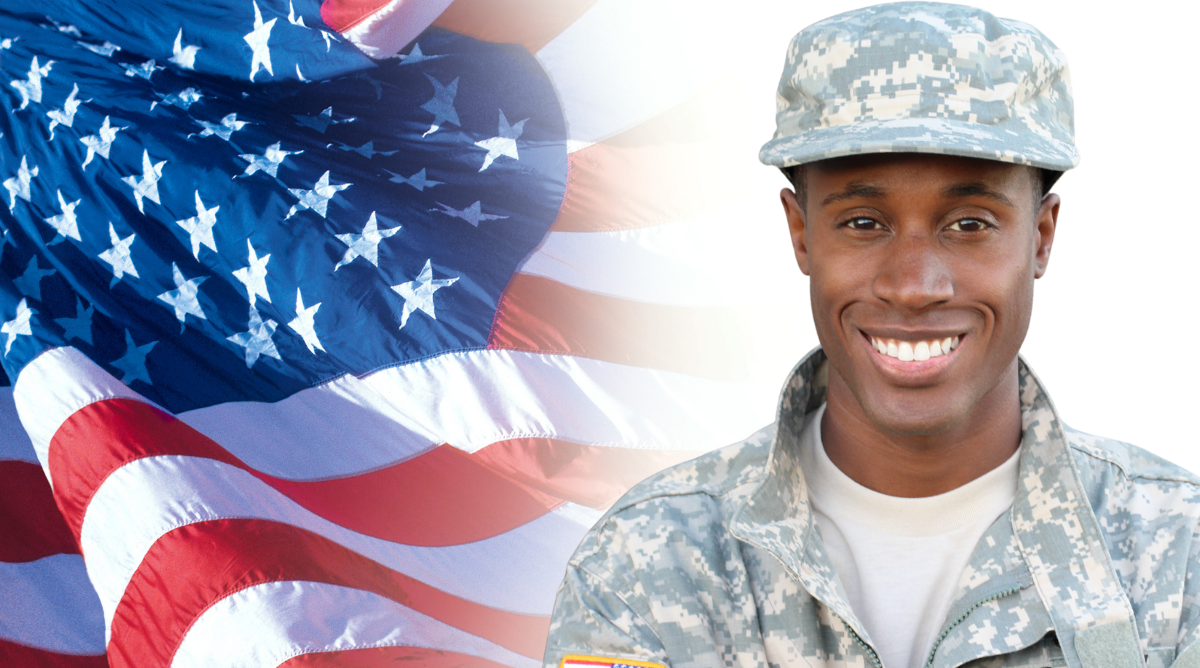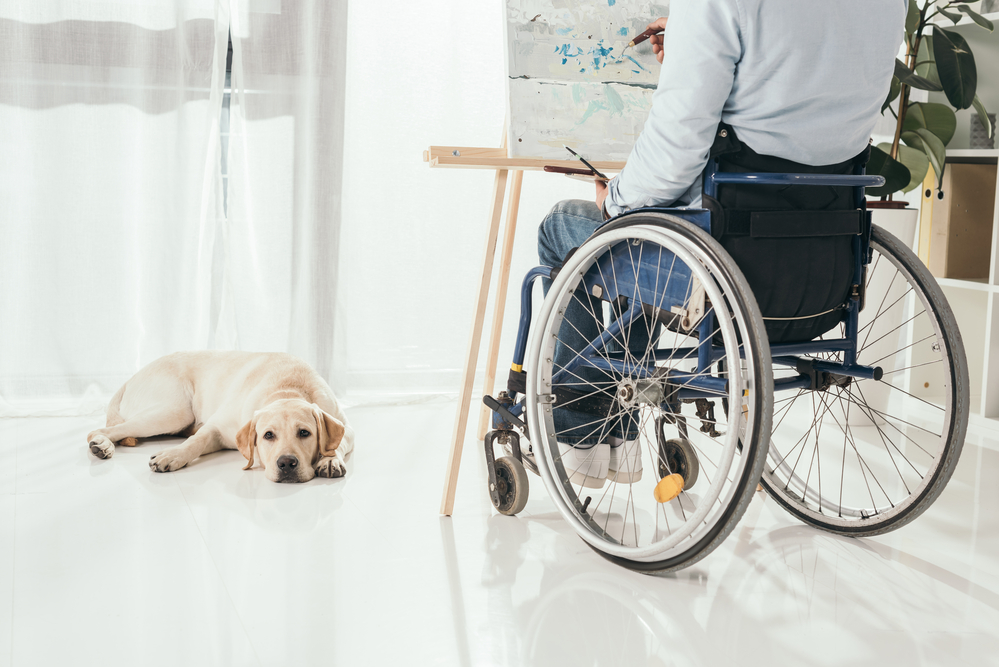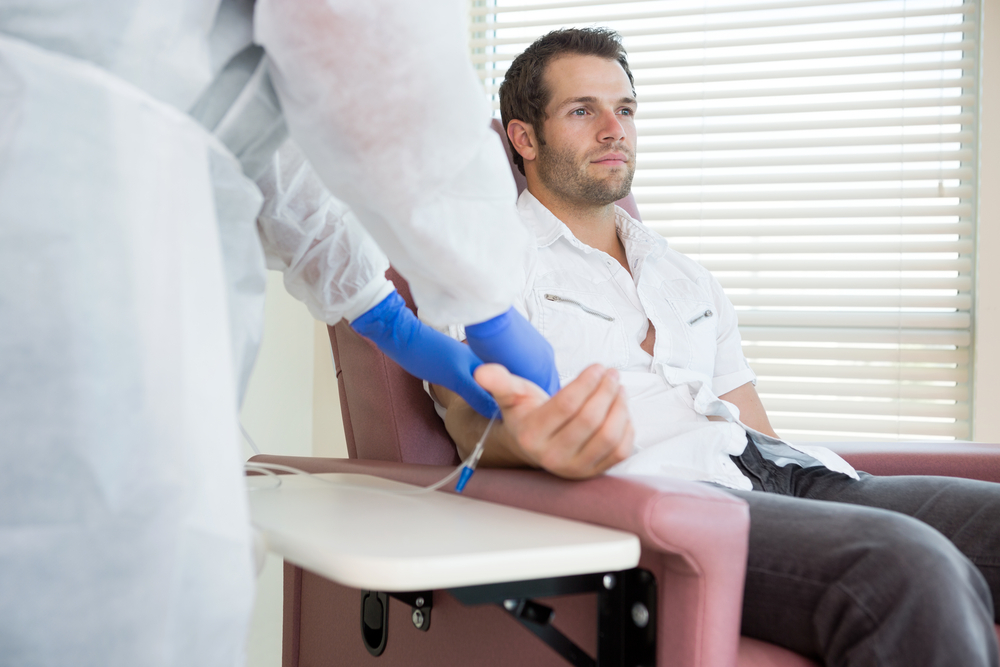
In the United States, there are currently more than 20 million military veterans. And veteran mental health needs are starting to become a priority. These men and women sacrificed years of their lives to serve their country. To protect the sovereignty of America, and to defend against terrorist or communist threats.
It is patriotism that leads American soldiers to serve. In the course of active duty, our soldiers are exposed to life-threatening injuries, the death and injury of other soldiers they know, and other significant traumas.
When a member of the American military is discharged or resigns from active duty, the physical scars and injuries sustained become their new normal. They transition back into civilian life, become employed, and rebuild a new life. The transitioning process from military to civilian life is difficult. Even more so if they have sustained psychological trauma.
What happens to military veterans who have mental health disorders as a result of active duty? There are transitioning programs provided by the Federal Government to help them adapt to a new life. But many veterans feel the support is inadequate. That it doesn’t prepare them for life after military service. And many feel that there is a prevalent social stigma against mental health problems, both for active-duty and retired veterans.
There are barriers that veterans face to get non-conventional therapeutic treatments that can help them manage the symptoms of PTSD. When we honor our veterans for their service and sacrifices, we can also advocate for access to alternative medicine.

What does it feel like to have post-traumatic stress disorder? Symptoms can be different for each individual. Some veterans with PTSD are able to successfully manage symptoms with anti-anxiety or anti-depressant medications. And for others, the psychotropic medications (the conventional route to treat mental health disorders) doesn’t work.
A soldier diagnosed with post-traumatic stress disorder may experience some or all of the following symptoms:
Individuals with PTSD have good reasons for withholding trust. And it has to do with controlling their environment (as best they can) and reducing the risk of injury. Both physical and emotional injury. A deep fear of trust can be a way that veterans avoid developing a deep relationship. If you have fewer close relationships, you can reduce your loss, should something happen to someone you love.
For veterans, this stems from the close working relationship and comradery that they develop with other soldiers in the military. People who serve together on the same base, or in the same overseas deployment operations for years, become a surrogate family. And when something bad happens in active duty, the loss of that relationship compounds feelings of fear, anxiety, and depression.
The psychology is not complicated. When you have grieved a loss, you may want to distance yourself from becoming close to anyone again. It feels like the only thing they can do to avoid being in the circumstance that caused the trauma. A violent incident or accident, where they lose someone they love. If a loss was the trigger for the trauma, veterans may avoid social contact as much as possible.
In some cases, the fear of seeing a loved one (like a family member or close friend) hurt, results in hypervigilance. The person with PTSD may need to take extreme precautions with a sense of duty to protect their loved one. That can include compulsive micromanagement of the loved one, including constant communication. They need to know (virtually at all times) that their loved one is safe.
Imagine you lived with uncontrolled stress and anxiety. A constant state of worry is exhausting. Veterans with combat-related post-traumatic stress disorder have higher than normal incidents of sleep disruptions. Impacted by anxiety, and sometimes flashback dreams or sleep terrors.
It can be hard for a military veteran to talk about the trauma. And it is important to understand that discussing the event can intensify the traumatic symptoms. Imagine that the veteran has placed the emotional trauma into a box. And duct taped it. And put the box in safe. And buried the safe. That is what PTSD makes you do. Paralyzed to ‘open the box’ and re-experience the trauma.
We live in an age of emotional transparency. More than other eras in social history. The hard work that some veterans with PTSD do daily to integrate socially at home, and in the workplace is difficult. With unresolved traumas, and the presence of symptoms of anxiety or depression.
Sometimes it is easier to deter people from engaging with you socially so that you don’t have to “fake being okay” in front of others. Patients with PTSD can be moody, aggressive, and angry in demeanor. And many do not realize that they are doing it subconsciously, as a coping method to reduce anxiety.
Anytime and anywhere, a flashback of the traumatic event can happen for a person with PTSD. They have no control over it. And when a flashback occurs, it is not the same as remembering something from the past. It is more like transporting themselves back to the exact moment it happened. And living through the trauma all over again.
Chronic insomnia can contribute to a host of health issues. It can also make employment more difficult for the veteran (and impossible in severe cases). Veterans don’t want to be around other people if a flashback occurs. They can experience symptoms of extreme fear and apprehension that they do not want others to see.
One of the physiological symptoms of PTSD is “muscle armoring”. The human body will release cortisol (the stress hormone) when it feels that it is in a “fight or flight” situation. If the brain thinks there is danger, it releases the hormone and increases cortisol levels in the body.
What changes happen to your body, when you are afraid? Or when you are experiencing extreme stress? One of the symptoms might be stiff muscles. Clenching of the hands is another common response. Teeth grinding is yet another way that the body responds to emotional stressors.
Some veterans experience anxiety levels that are so persistent, they develop a severe muscle disorder called “muscle armoring”. This physical reaction helps the veteran by:
Some veterans say body armoring is a reflex action that helps them reduce emotional outbursts. When they are feeling overwhelmed, they feel that they can ‘lockdown’ their emotions. Remember, victims of trauma will do whatever they can to avoid unpacking their traumas by discussing them. It is just too overwhelming and psychologically painful for them.
Over time, a patient with PTSD will develop hypertonic fascia. Fascia is a somewhat translucent white substance that covers the entire body. And for most people, the fascia is a uniform thickness. However, fascia can become thicker in areas that are subject to biomechanical stressors.
We know that body armoring is a physiological response to psychological stress. But over time, the clenching of muscles repeatedly and for long durations, causes fascial lesions. What happens next, is a rebuild of fascia with collagen between joints and muscles. The new fibroblasts are less flexible and commonly found in the lower back, shoulders, and arms, restricting the range of motion for the patient.
Over the long-term, if symptoms are not resolved, hypertonic fascia can lead to a permanent disability for veterans with PTSD. Not only is the mental health and well-being of the veteran at stake when post-traumatic stress is not resolved, but there are also debilitating physical symptoms that can develop. Emotional pain translates into physiological symptoms for PTSD patients. And that can restrict activities of daily living, employment, and overall quality of life.

Post-traumatic stress disorder (PTSD) means living with symptoms that can be unpredictable. Imagine having a job, and worrying that you may get a flashback at work? That can happen frequently for individuals who have PTSD. Veteran mental health is impacted by self-isolating behaviors.
Some patients feel embarrassed. Others are fearful of awkward situations that can jeopardize their job or relationships. Self-isolation is a common response for veterans with PTSD. And with that disconnect from supportive people in their life, they can quickly develop moderate to severe symptoms of depression.
Several studies commissioned by the U.S. Veteran’s Affairs reported that there is a strong correlation between clinical depression and heart problems. Unresolved mental health disorders can contribute to increased rates of heart disease and heart attacks for veterans.
Treatment-resistant depression (TRD) is also categorized as major depression. It is one of the most common veteran mental health disorders in the United States. The National Institute for Mental Health (NIMH) has estimated that as many as 15.7 million American adults have had at least one major depressive episode. Or roughly 6.7% of the U.S. adult population.
The American military provides world-leading combat training and conditioning. Part of that training involves desensitization. Soldiers are conditioned to be strong in the face of adversity. To never show weakness. And if they are injured, they are also taught to ‘power through’ because they must contribute to the team.
After years of desensitization, veterans who have post-traumatic stress disorder can feel ashamed. They have no reason to! They are exposed to disturbing events and witness things that many of us may never see in our lifetime.
The fact that the trauma they endured has had an emotional impact, does not resonate well with an American veteran. They have a strong and critical inner dialogue. Why are other soldiers able to endure, without developing PTSD? Veterans may criticize themselves for the condition. Not realizing that anyone can have PTSD after sustaining severe emotional trauma.
There are many approaches to treating patients with PTSD. Talk therapy or cognitive behavioral therapy can help the individual open up and reduce the impact of the trauma. Getting through the barriers that PTSD patients build can take years of therapy. Psychotropic medications are sometimes provided in conjunction with talk therapy to reduce the impact of anxiety on daily life. And to improve veteran mental health recovery.
Researchers cannot pinpoint exactly where the human brain holds traumas. Some electroconvulsive therapy (ECT) may be recommended for individuals with treatment-resistant depression and moderate to severe PTSD. But it is not always effective.
Treatments are not comfortable emotionally for a veteran with PTSD. And after many years of therapy, they may feel that life will ‘never get better’ because the therapies are not working. Unresolved PTSD and TRD contribute to a higher than average rate (compared to non-veteran populations) of suicide and self-harm.
Veterans may also turn to self-medicating with addictive drugs and alcohol. Which can increase the risks of suicidal thoughts and behaviors.
Veteran’s Affairs or the “VA” is the federal branch that provides healthcare and social support services for retired soldiers. As a federal body, Veteran’s Affairs refuses to contradict the current Schedule 1 classification of cannabis. Marijuana (whether adult-use or doctor supervised) remains a prohibited drug according to federal law.
Meanwhile, at the time of writing, thirty-six states have legalized medical marijuana. In the November 2020 election, South Dakota and Mississippi voters approved legalization. So, if a veteran lives in a legalized state, and has a qualifying condition like PTSD, you would assume that it would be easy to get a medical card. In fact, the primary care physician for the veteran at the VA should be able to prescribe it, right?
That is the ultimate contradiction between state law and federal law. Veterans who have a diagnosis of moderate to severe PTSD live with debilitating symptoms. Some of the most severe cases of PTSD and treatment-resistant depression are linked to the alarming rate of veteran suicides.

There have been several recent studies that suggest military veterans with post-traumatic stress disorder may benefit from therapeutic cannabis use. Different strains of cannabis have unique cannabinoids that can stimulate the endocannabinoid system. The two prominent cannabinoids in cannabis are CBD and THC.
What is valuable about health studies regarding cannabis use PTSD treatment is how both CBD and THC can work to make symptoms more manageable. For individuals who have physiological pain due to muscle armoring or other symptoms, THC can provide effective pain relief. The psychoactive effects of THC in medical marijuana can also help improve sleep quality and may provide anxiety relief.
Some studies have reported that activating CB1 and CB2 receptors for veterans, can help improve memory “consolidation and retrieval.” As many veterans with PTSD have suppressed the traumatic memory, balancing the CB1 and CB2 receptors may help them unlock the memory. In a safe way (under doctor or psychologist supervision) to start working on the root trauma.
In other studies, veterans who suffered sleep disruptions because of nightmares experienced some relief. When memories are not suppressed, the incident of night terrors and insomnia can go down. One of the first steps to recovering health and emotional well-being is restoring healthy sleep patterns.
A study by NYU Langone Medical Center showed people with PTSD have significantly lower levels of anandamide. A primary endocannabinoid in the human body, responsible for regulating moods like happiness, fear, and anxiety.
While the federal government has classified cannabis as a Schedule I prohibited substance, in legalized states, veterans have a new option. The use of medical cannabis means ongoing consultation with a physician regarding symptoms. Different types of cannabis may be more effective for daytime use (energetic, happy, and anxiety-relieving) while some strains may be recommended for evening use. To help calm, soothe, and relax to ensure a good night of sleep.
American military veterans can have medical care services revoked if they are found to be using illicit drugs. However, the Veteran’s Affairs department announced in 2018 that veterans would not be penalized for using medical cannabis. If they resided in a legalized state. And if medical marijuana use was under the supervision of a primary care provider (PCP).
House Resolution 5520, “The VA Medicinal Cannabis Research Act of 2018” died in congress. The intention was to provide funding to research cannabis for veteran health treatments. And part of HR 5520 was to legalize medical cannabis use by veterans, through the VA medical care network. The proposed legislation died in the House.
However, the new “MORE Act”, a bipartisan bill has new provisions that may make medical marijuana accessible to veterans through the VA health network. And improve veteran mental health treatments.
“Veteran participation in state marijuana programs does not affect eligibility for VA care and services. VA providers can and do discuss marijuana use with Veterans as part of comprehensive care planning, and adjust treatment plans as necessary.”

Ketamine treatments are rapidly becoming a legal therapeutic reality and advancement in mental health therapies. Ketamine has been approved by the Food and Drug Administration (FDA) as an analgesic. But it is also approved for off-label use. Which means, at the therapeutic discretion of a licensed physician or mental healthcare provider. This has brought about the rise of online psychedelic medicine services, such as TripSitter.Clinic.
The prescription medications for PTSD treatment include SSRI’s (selective serotonin reuptake inhibitors) or SNRIs (selective norepinephrine reuptake inhibitors), or a drug called benzodiazepine. According to Prakash Masand, MD, the co-founder, chairman, and CEO of the Centers of Psychiatric Excellence (COPE), the prescriptions are not always successful. In fact, he believes that up to 40% of patients with severe depression or trauma do not achieve remission.
Dr. Masand and his team at COPE administer ketamine infusions for patients who have post-traumatic stress disorder (PTSD). Many of his patients are veterans. In an interview with Psychiatry Advisor, Dr. Masan revealed that between 30% to 40% of patients with PTSD require ongoing infusions or a regular schedule of ketamine treatments.
The results are promising, as ketamine can act as both an antidepressant, antianxiety and mood-stabilizing treatment. Some studies have also suggested that patients with PTSD may be more receptive to talk therapy or CBT (cognitive behavioral therapy) after receiving a dose of ketamine.
Ketamine treatments to date have been in clinical environments. The drug can be administered orally (through a lozenge or hard candy) or by IV infusion. Ketamine trips can last from 1-3 hours depending on the dose. Clinical treatments for PTSD for veteran mental health therapies may be the next frontier of treatment.

The rates of self-harm and suicide by American veterans are continuing to climb. In 2019, a new report revealed that rates of suicide did not in fact go down, in the United States. About 22 veterans with unresolved mental health needs commit suicide every day.
Some of the statistics about veteran mental health and suicide rates are more than saddening; they indicate a crisis-level need for intervention and support for our retired soldiers. Few Americans know that:
On March 5, 2019, President Trump signed an executive order that launched a new task force. The President’s Roadmap to Empower Veterans and End a National Tragedy of Suicide (PREVENTS) was released to the public through Veteran’s Affairs on June 17, 2020.
However, as cannabis remains a federally prohibited drug, the PREVENTS plan did not include collaboration with health providers in states where medical marijuana is legalized. Something that the bi-partisan MORE Act hopes to change in 2021, to improve veteran mental health programs.
If you are a veteran or have a veteran in your family who needs support, visit this page or call 1-800-273-8255. The Veteran’s Crisis Line also provides a confidential live online chat, where veterans can ask questions, get support, and access mental health resources.
No Information on MarijuanaDoctors.Com should be used to diagnose, treat, prevent or cure any disease or condition. You can view our Full Disclaimer here.